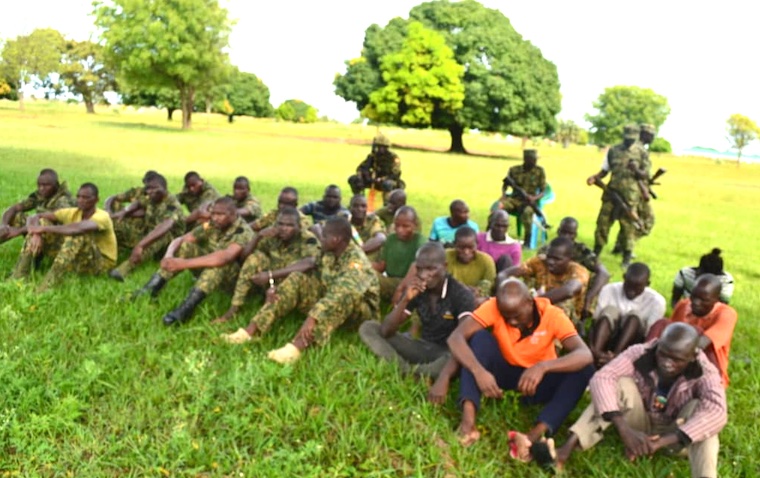Four soldiers and 14 civilians were sentenced to 24 months in prison
A Uganda People’s Defence Forces (UPDF) court has sentenced four soldiers and 14 civilians to two years in jail after convicting them on charges related to negligence of military gear and illegal possession of lethal weapons.
The soldiers; Pte Bernard Odyeka, LCpl William Isiko, Pte Denis Niwasasira, and Pte Charles Ogwari each received two-year prison sentences. The convictions were delivered during a session at the 5th Infantry Division Court Martial, chaired by Col Peter Musherure.
UPDF deputy spokesperson, Col Deo Asiimwe Akiiki, confirmed that Odyeka, a 31-year-old soldier from the 103 Battalion, admitted guilt, acknowledging his carelessness in handling military equipment.
“These soldiers failed to protect war material, violating section 120(1) 1(2) of the UPDF Act. Pte Bernard Odyeka admitted guilt, along with Lance Corporal Isiko, Private Niwasasira, and Private Ogwari, who were all found guilty of failing to safeguard military assets,” Col. Akiiki explained.
The soldiers were found to have violated standard operating procedures (SOPs) issued by Brig Gen Keith Katungi, the commander of the 5th Infantry Division. The procedures required soldiers to carry their weapons and pouches at all times, a directive the convicted soldiers had ignored.
In addition to the soldiers, 14 civilians were sentenced to 24 months in prison for illegal possession of arms, ammunition, and military gear, which contravenes section 159(1)c of the UPDF Act. The civilians reportedly pleaded guilty to the charges.
Incidents of civilians possessing military gear have become frequent in urban areas like Kampala and Wakiso, with reports of these items being used in illegal roadblocks and robberies. Hotspots for such activities include Namusera on Hoima road, Myanzi on Mubende road, Kireka-Kyaliwajjala road, and Nsangi on Masaka road.
The UPDF, working alongside the police’s Crime Intelligence Directorate (CID) and the Flying Squad Unit (FSU), has intensified operations to apprehend offenders, including covert and overt surveillance methods. By URN/ The Observer






